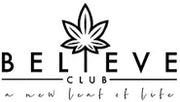CBD Facts Vs Myths
The cannabis industry is plagued with myths, marketing jargon and faulty claims, so we want to put the record straight and split the difference between the actual facts and the unrealistic claims.
The media are also guilty of falsely stating anti-cannabis points which aren’t backed up by any studies, while cannabis as a whole has negative connotations which are slowly disappearing over time.
We hope this will help you to make an active choice on whether CBD is right for you, looking purely at the facts and disqualifying any unrealistic expectations from this plant.
CBD Will Get You High
CBD, or cannabidiol, is one of the 113 known cannabinoids found in cannabis, however it is arguably the most well known as people have begun using it to help them for various ailments.
CBD is a non-toxic cannabinoid, it doesn’t have the intoxicating effects that THC (tetrahydrocannabinol) has, meaning you won’t get the euphoric effects of feeling ‘high’.
Of course, you may want to check the levels of THC present, as this can be found in CBD based products, but to be sold legally in most areas of the world, the levels of THC have to be incredibly low. In fact, CBD can have the contrasting effect, lowering the ‘high’ you get from THC.
I Took CBD And It Didn’t Work
You may hear someone state that they took CBD and it didn’t yield the results they were after, therefore it doesn’t work.
However, there are a number of questions that must be applied in this scenario. Firstly, what results were they hoping to achieve from CBD? CBD has amazing capabilities, but it’s not a magic cure for everything, so sometimes expectations have to be pulled in a little.
Secondly, how much were they dosing? While the FSA recommends not taking any more than 70mg of CBD in a 24-hour period, the average person won’t go close to that number, whereas new starters are often recommended to start of low (5-10mg per day) and build up if necessary. It is possible they didn’t take the required amount in order to achieve optimal results.
The brand you bought from and the actual levels of CBD present in the tincture is also integral. It’s always worth checking the lab report for the batch you’ve ordered, to ensure it has the level of CBD they’re claiming it has.
But the final and most important point is that everyone’s body is different, what works for one person might not work for another.
All CBD oil’s Are The Same With Different Branding
While on paper this should be true, it largely isn’t the case. As previously mentioned, it is important to check the up-to-date lab reports to ensure they have the level of cannabinoids they’re claiming they have.
If a brand refuses to provide you with their lab reports, you should be very dubious about the stated quantities as they’re declining to illustrate evidence.
Brands also have to choose their carrier oil, of which it could contain hemp seed oil, MCT, sunflower seed oil, or many other options, which all have slight differences.
Even the extraction process can have an effect on the result, whether they’ve opted for CO2 extraction (either supercritical or subcritical) or potentially used a solvent to extract the CBD.
The CO2 extraction method is fast becoming the standard practice for the industry, but it is far from the only method.
4) CBD Isn’t Safe
Healthline points out that CBD is considered generally well-tolerated and safe, a claim backed by all major health bodies.
CBD can however have some side effects, such as causing a dry mouth or a reduced appetite, while one study showed that some people suffered from diarrhoea.
Whenever any fear is shown by an organisation, it’s around levels of THC, such as the NHS stating that ‘the more THC the product contains, the greater these risks are’, but does not state any known issues around CBD.
The concept around it being unsafe is largely driven by its origin, while Healthspan points out that the co-association with marijuana means it has a negative reputation which is hard to shake off.
5) CBD & Marijuana Are The Same Thing
We touched earlier on the fact that people have a negative connotation with CBD oil due to the connection to marijuana, but it is important to understand the difference.
CBD can be found in marijuana, but marijuana will have much higher levels of THC. It all comes down to the differences between hemp and marijuana.
Both hemp and marijuana are forms of cannabis from the same species, the difference purely comes down to the percentage of THC present in the strain. If there is more than 0.3% THC, it is counted as marijuana, as it has the ability to get you high.
All CBD has to come from industrial hemp, meeting certain regulations in order to be legally sold.
6) Organic CBD Oil Isn’t Necessary
While the ‘organic’ label has become a bit of a marketing tag line in the wellbeing industry, with hemp it is integral.
The reason for this is because hemp is highly porous, so if the farmers use pesticides or chemical fertilisers in the farming process then this will transfer through to the CBD oil.
This is also why it is important to check the lab reports, as a good lab report should demonstrate the pesticide levels, which should be ‘not-detected’ for all.
7) CBD Is Addictive
According to the World Health Organisation, the studies carried out indicated that CBD is not associated with abuse potential.
The confusion around whether CBD is addictive seems to be the connection to the intoxicating cannabinoid THC. A 2011 study on the safety and side effects of cannabidiol highlighted that CBD did not display any signals of abuse liability, based on the dosages they tested at.


